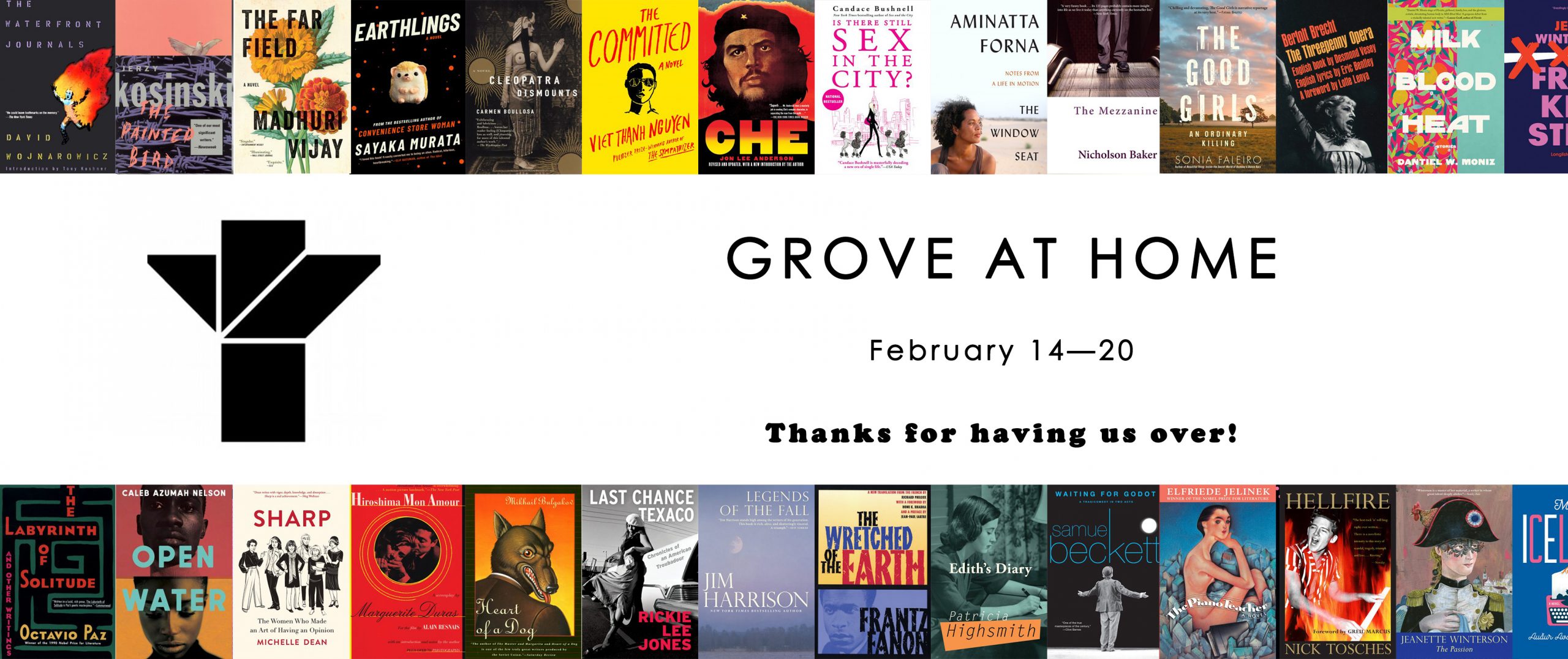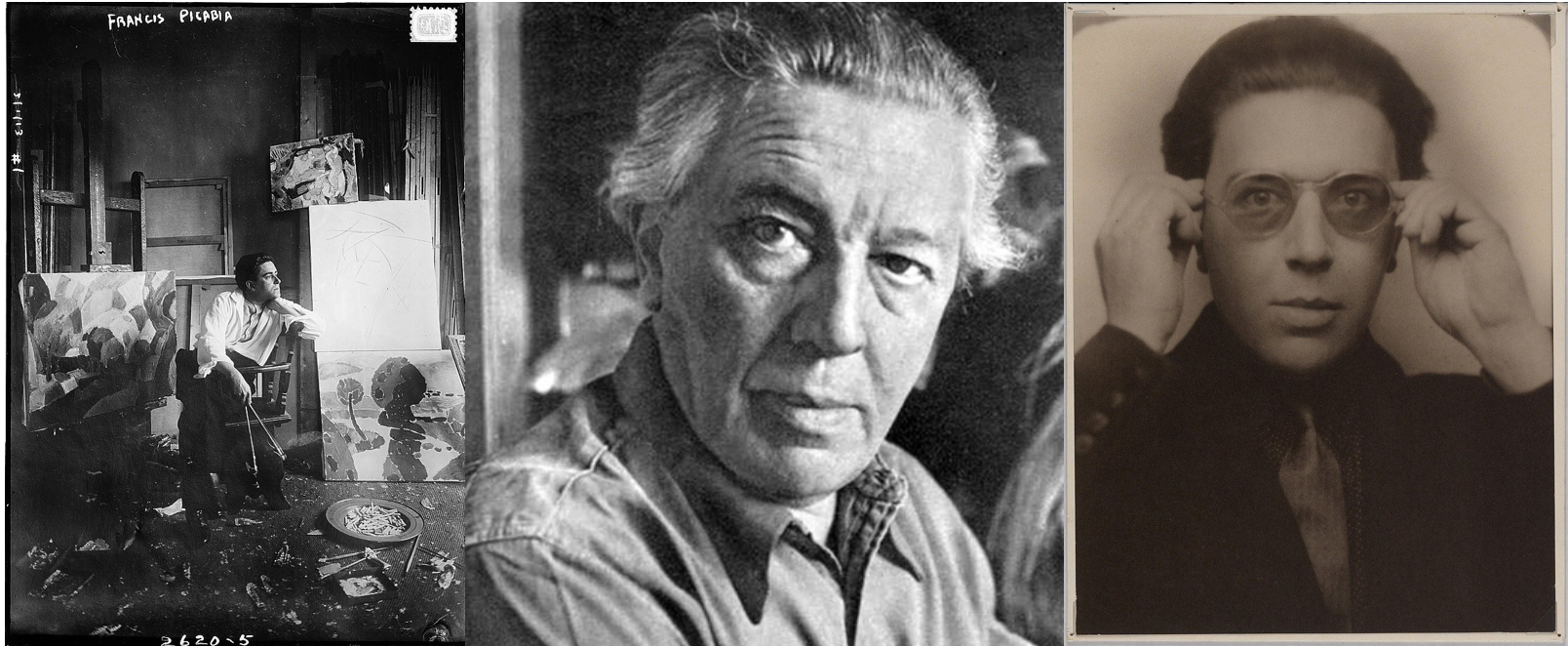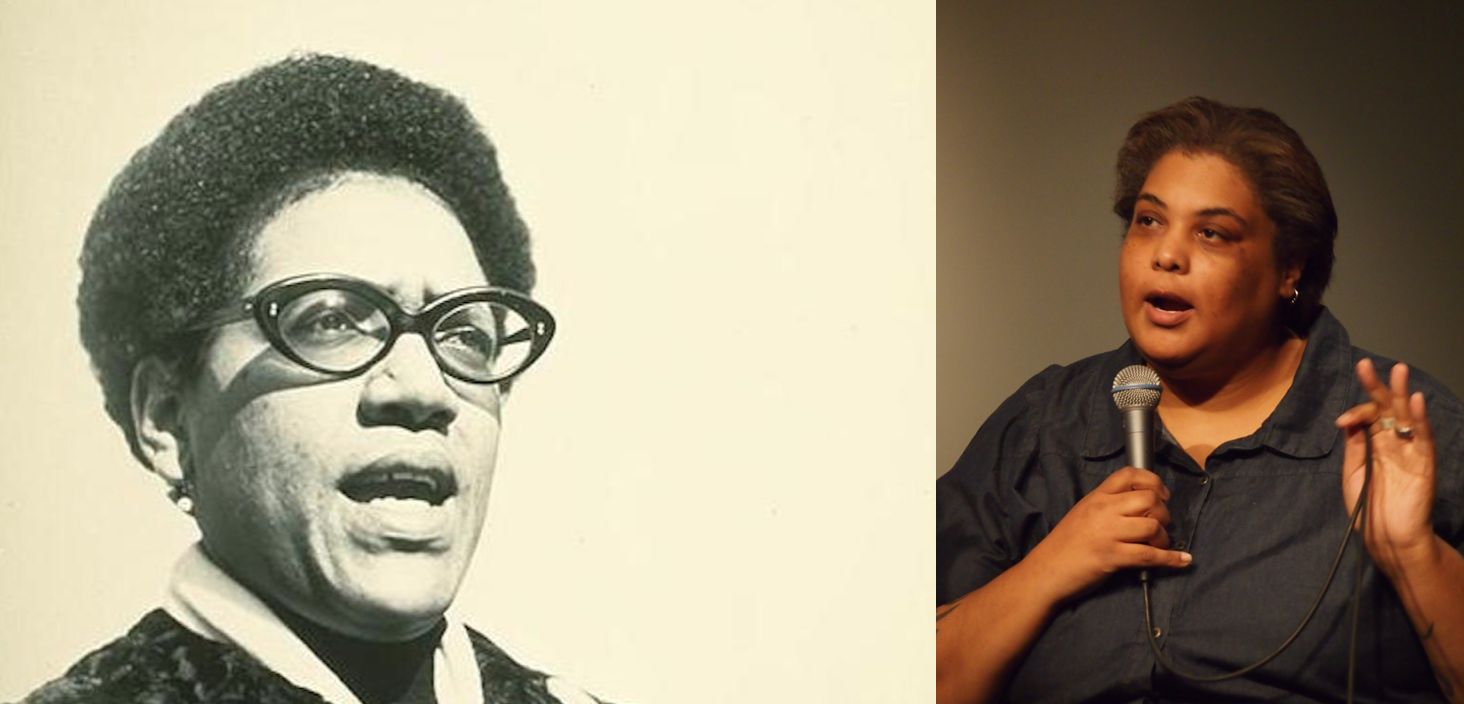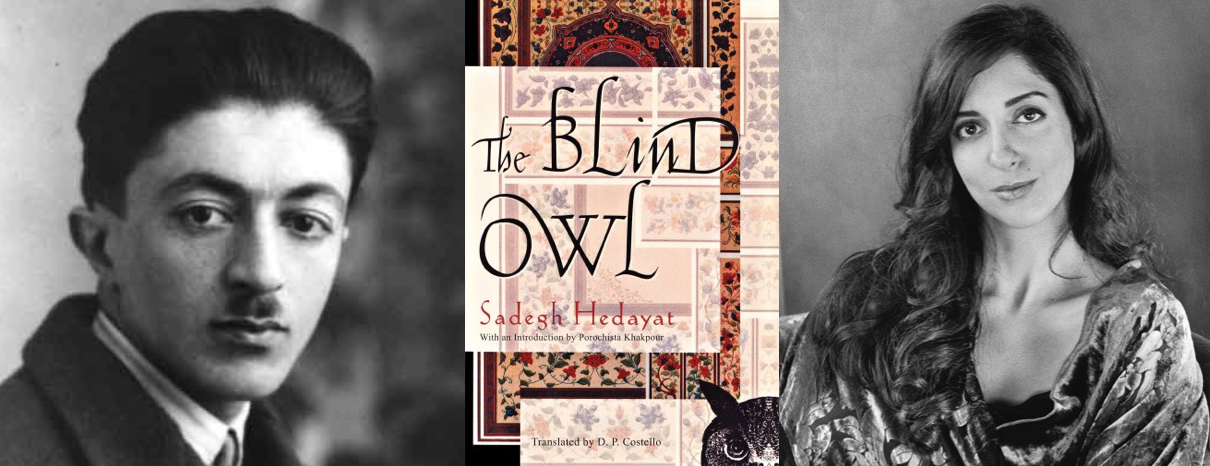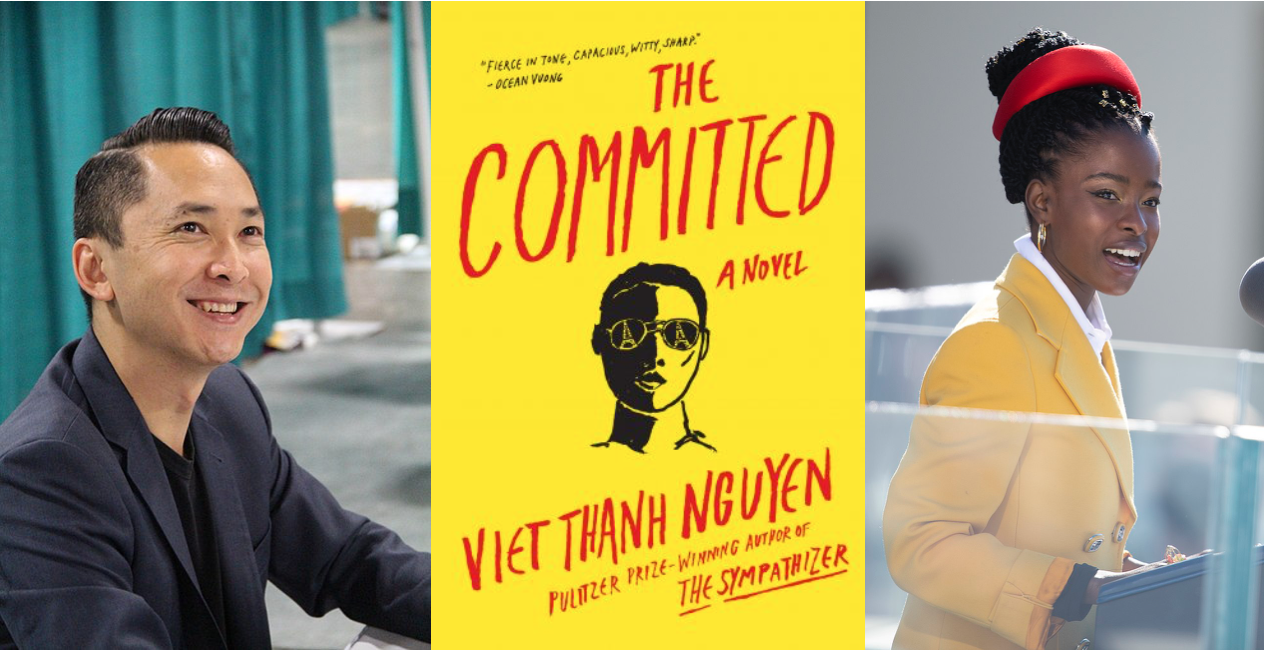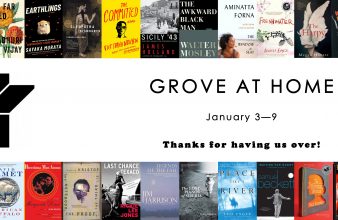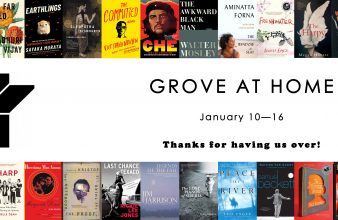News Room
Welcome to Grove at Home!
Every weekday, from now until we’re all out of the house again, we’ll be sharing a couple of links — some fresh, some from the vault — to say hi, remind you to keep reading, and let you know what’s on our minds.
Friday, February 19
“Surrealists have luxuriant hair”: Happy birthday, André Breton!
Today marks the 125th birthday of the French author André Breton, the leader and chief theorist of Surrealism. Breton reflects on both the social realities and aesthetic theories of his Surrealist circle in Nadja, his classic 1928 novel, which we have long published in Richard Howard’s classic and beloved English translation. In this video produced for Tate’s “Unlock Art” series, Doctor Who star Peter Capaldi unpacks the history of Surrealism — primarily visual Surrealism — giving due shrift to Breton’s role at the forefront of the movement.
Francis Picabia’s unused magazine covers for Breton
In 1922, Breton founded a new journal of the arts, Littérature: New Series, and asked his friend and collaborator, the legendary Dada artists Francis Picabia, to draw some covers. Picabia obliged, sending twenty-six covers to Breton, who was able to make use of only nine of them. The remaining seventeen were sealed in an envelope, and not widely seen until nearly century later, when Breton’s daughter Aube Breton-Elléouët allowed them to be displayed in a 2008 Paris exhibition. In 2017, Stephanie LaCava revisited the covers in a piece at the Paris Review that includes reproductions of a number of them.
“A goddess stands with her hands behind her back, half or her body painted black, her hair tied up in a Hellenistic bun. A tangle of lines surrounds her. One of them leads to a snakelike figure, with Littérature written above his beady-eyed head. This may be a reference to Eve in the Garden of Eden or to Leda and the swan. In any case, Picabia lets us know that he’s not buying the sanctity of antiquity: the two balls at the end of the snake’s tail are clearly suggestive.” Continue reading…
A more detailed history of Surralism
For a deeper dive into the various schools of Surrealism that circulated through Paris in the twenties, and where Breton stood in relation to them, check out thsi short video, in which Canadian writer Nikita Shorikov offers an excellent introductory history.
Thursday, February 18
Gabriel Byrne in conversation with Lily King
Last month, we published Walking with Ghosts, a memoir by legendary actor Gabriel Byrne that has been widely praised by critics (Kirkus Reviews compared Byrne’s writing to James Joyce and Seamus Heaney, which is… presumably a good thing!) and received widespread support from readers everywhere. Last week, Gabriel’s virtual book brought him to Brooklyn’s Center for Fiction, which hosted an online conversation between him and Lily King, whose bestselling latest, Writers & Lovers, we published this week in paperback! If you missed the profoundly excellent conversation they had, the good news is you can watch the whole thing on YouTube.
Today would have been the 87th birthday of the American poet Audre Lorde, self-described as “Black, lesbian, mother, warrior, poet,” who died of cancer in 1992 at the age of fifty-eight. To mark the occasion, we’re revisiting Roxane Gay’s introduction to last year’s Selected Works of Audre Lorde, which Gay also edited. Published by the Paris Review, it’s a powerful meditation on one of America’s greatest poets, one who “in all of her writing… offers us language to articulate how we might heal our fractured sociopolitical climate.”
“Lorde never grappled with only one aspect of identity. She was as concerned with class, gender, and sexuality as she was with race. She held these concerns and did so with care because she valued community and the diversity of the people who were part of any given community. She valued the differences between us as strengths rather than weaknesses. Doing this was of particular urgency, because to her mind, ‘the future of our earth may depend upon the ability of all women to identify and develop new definitions of power and new patterns of relating across difference.’” Continue reading…
Margaret Atwood on Bob Dylan’s Nobel win
Apropos of nothing especially timely, this short clip of Margaret Atwood in 2016 reflecting on Bob Dylan’s then-newly-announced Nobel Prize win is wonderful. Calling the choice of Dylan “a very broad message which is not in support of mob rule,” Atwood is clever, analytical, and earthily gracious, as ever.
Wednesday, February 17
Happy birthday, Sadegh Hedayat!
Today marks the 118th birthday of Sadegh Hedayat, 20th century Iran’s most celebrated — and most mysterious — writer, often credited with pioneering modernism in Persian literature. Over his short, peripatetic life, Hedayat studied in Paris and Mumbai, as well as his native Tehran, and was the author of more than thirty works of fiction, drama, and criticism, as well as translations from French into Persian of major authors including Kafka, Chekhov, and Sartre. He died by suicide in his Paris apartment in 1951. The Blind Owl, which we are proud to publish in an English translation by D.P. Costello, is widely considered his masterpiece.
Porochista Khakpour on The Blind Owl
In 2010, we published a new edition of The Blind Owl with a searing introduction by Porochista Khakpour, contextualizing the book within both Khakpour’s own family history and modern Iranian history itself, and offering a keen critical appraisal. “It is not an easy read,” she writes, “and yet, against all odds, it is the most renowned literary work of twentieth-century Iran… I’d like to think the Iranian disposition is simply more all-embracing of the experimental in art, as well as more inviting of investigations into the darkest crevices of the human soul.” Here, with thanks to The Rumpus for publishing it in its entirety, is Khakpour’s introduction.
“I was barely double-digits when I first heard the title Buf-i Kur. The Blind Owl—it sounded not unlike the titles of my children’s storybooks. When I inquired about it my father said it was a masterpiece of Persian literature, written before he was born. What was it about? I asked. Silence. Is it about a blind owl? Silence. Do we have it? I asked. There was something in my father’s uncharacteristic reticence that made me push further. Every few years the book would inevitably come up in conversation and I would prod, but still nothing but that same silence.” Continue reading…
Kioumars Derambakhsh’s Boof-e Koor
The Blind Owl has been adapted for the screen several times. Perhaps best-known is Kioumars Derambakhsh’s 1974 adaptation in Persian.
(Continue watching: Part 2, Part 3, Part 4)
Raúl Ruiz’s La Chouette Aveugle
In 1987, the prolific Chilean director Raúl Ruiz released his own postmodern take on Hedayat’s classic book, remixing it with the story of a projectionist at an Arabic-language Parisian movie house and taking its dreamlike, surreal energy in wild and intense new directions. Here are just a few scenes from the film.
Tuesday, February 16
Dating later in life: Candace Bushnell talks to Lauren Williams
We notched off another Valentine’s Day this weekend, and for some of the world’s greatest fans, this meant one thing: re-reading, re-watching, and reconsidering Candace Bushnell’s absolute classic, Sex and the City. With HBO Max preparing a reboot of the groundbreaking series that finds Carrie Bradshaw & co. navigating a whole new world of sex and dating in their fifties, it’s a great time to watch this discussion that Candace had with Atlantic editor Lauren Williams in late 2019, to discuss Candace’s bestselling Is There Still Sex in the City?, the joys and challenges of dating after fifty, and much more.
Viet Thanh Nguyen on inaugural poet Amanda Gorman
Just two weeks from today, we’ll finally get to publish The Committed, Viet Thanh Nguyen’s long-awaited sequel to his Pulitzer Prize-winning debut novel, The Sympathizer. (You can pre-order it now from your favorite indie bookseller or Bookshop!) In the meantime, to tide you over, here’s Viet writing this week in Time magazine on what we can learn from the remarkable inaugural poem delivered January 20th Amanda Gorman.
“Amanda Gorman moved me deeply, as she did many others, with her inaugural poem ‘The Hill We Climb.’ When I found out that she was nurtured at least partly by the Los Angeles Public Library, whose books I have often borrowed as a fellow Angeleno, I tweeted that ‘Public libraries and young poets make America great.’ Dreams of being a writer were implanted in me when the San Jose Public Library gave me an award for my book ‘Lester the Cat’ in the third grade. Gorman managed the much more astonishing feat of becoming the Los Angeles Youth Poet Laureate when she was sixteen. She was one of nineteen finalists brought to the stage of the Taper Auditorium of the Central Library. How many aspirations were encouraged, how many future poets were named? A crucial question and an important task, as poets can speak to the conscience of a country.” Continue reading…
Gabriel Byrne talks to Mitchell Kaplan
Last month, we published Walking with Ghosts, Gabriel Byrne’s remarkable memoir, which Colm Tóibín, writing in the Irish Times, calls “a dreamy book, lyrical, filled with images of things that slipped by and have faded.” This weekend, Gabriel talked with legendary bookseller and host of “The Literary Life” podcast Mitchell Kaplan discussed the book with Gabriel. “People say, ah, I don’t really remember that much, it’s kind of hazy. But if you get into the frame of mind where you—I’m not saying meditate, but if you really concentrate on the image, unconscious memories will start to bubble up.”
